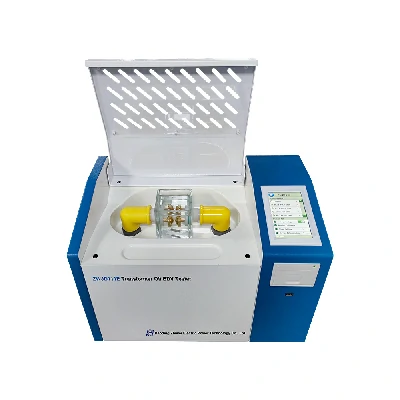How does aging affect oil breakdown test results?
Aging can have a significant impact on the results of oil breakdown tests, which are commonly performed on insulating oils used in electrical transformers and equipment to assess their dielectric strength and overall condition.
Here’s how aging can affect oil breakdown test results:
- Decreased Dielectric Strength: Over time, the dielectric strength of insulating oil may decrease due to aging processes such as oxidation, thermal degradation, and contamination. As the dielectric strength decreases, the oil becomes more susceptible to electrical breakdown under high voltage stress. This can result in lower breakdown voltage readings during oil breakdown tests.
- Increased Dissolved Gases: Aging of insulating oil can lead to the generation and accumulation of dissolved gases, such as hydrogen, methane, ethylene, and acetylene, through processes like thermal decomposition of oil and paper insulation. These gases can affect the dielectric properties of the oil and contribute to partial discharge activity or breakdown during oil breakdown tests.
- Contamination: Aging can also result in the accumulation of contaminants in insulating oil, such as moisture, particulate matter, metals, and by-products of degradation processes. Contaminants can adversely affect the dielectric strength of the oil and promote breakdown under high voltage stress. Oil breakdown tests may reveal higher breakdown voltage values or increased variability in test results due to contamination.
- Changes in Insulation Properties: Aging can cause changes in the chemical composition and physical properties of insulating oil, altering its dielectric behavior. For example, oxidation of oil may lead to the formation of polar compounds and sludge, which can affect the oil’s insulation properties and breakdown behavior. oil breakdown test These changes can manifest as deviations in breakdown voltage readings during oil breakdown tests.
- Thermal Aging: Exposure to elevated temperatures over time, such as those experienced in operating transformers and electrical equipment, can accelerate the aging of insulating oil. Thermal aging can result in the degradation of oil molecules, polymerization, and changes in viscosity and fluidity, all of which can impact the dielectric strength and breakdown characteristics of the oil.
- Moisture Absorption: Aging may increase the tendency of insulating oil to absorb moisture from the surrounding environment or from degraded insulation materials. Moisture absorption can lower the dielectric strength of the oil and promote breakdown under high voltage stress, leading to lower breakdown voltage readings in oil breakdown tests.
Overall, aging can lead to various changes in the properties of insulating oil that affect its dielectric strength and breakdown behavior. Oil breakdown tests play a crucial role in assessing the condition of aging oil and identifying potential risks of electrical breakdown in transformers and equipment. Monitoring oil breakdown test results over time can help detect signs of aging and degradation, enabling timely maintenance and replacement to ensure the reliability and safety of electrical systems.
